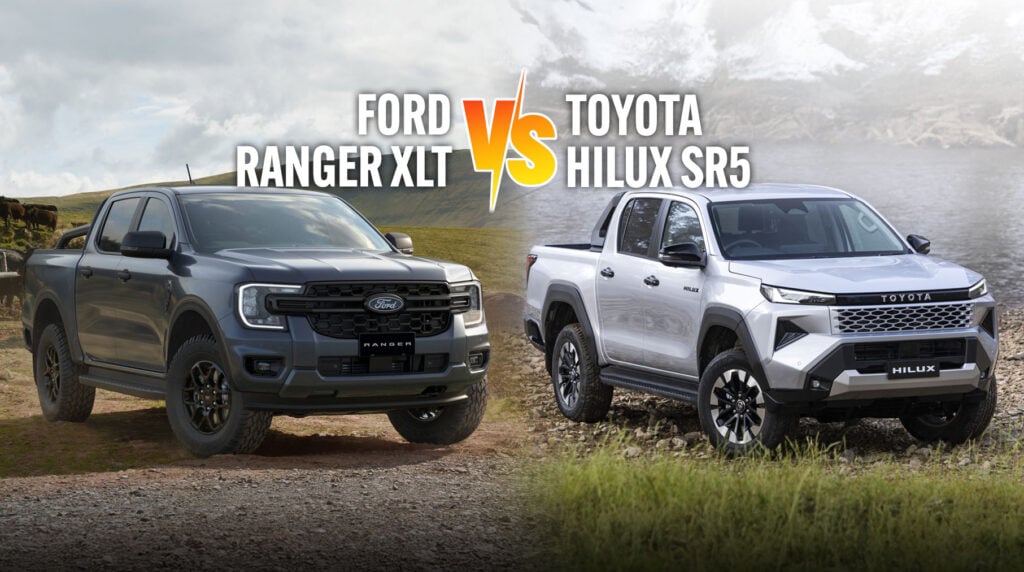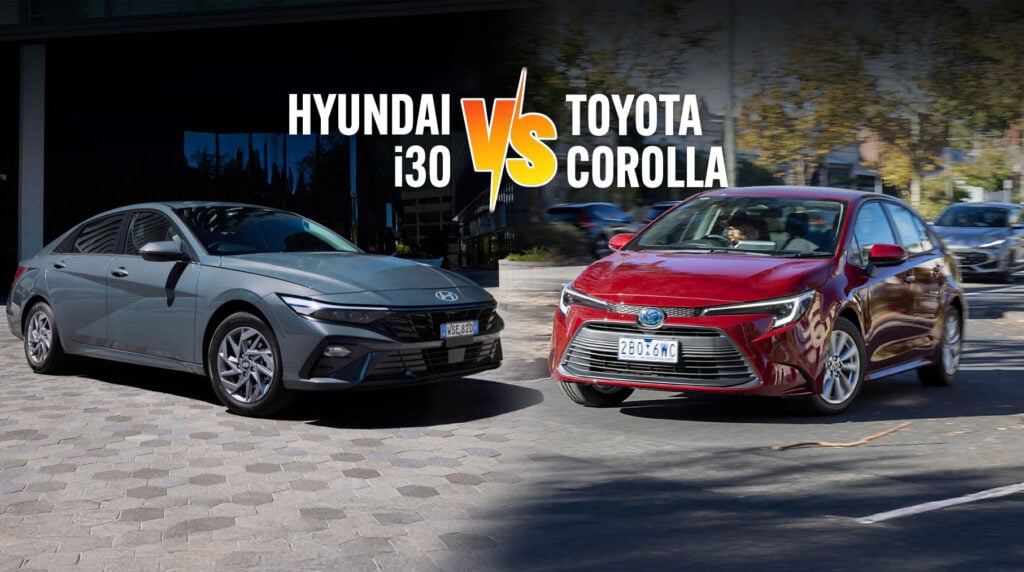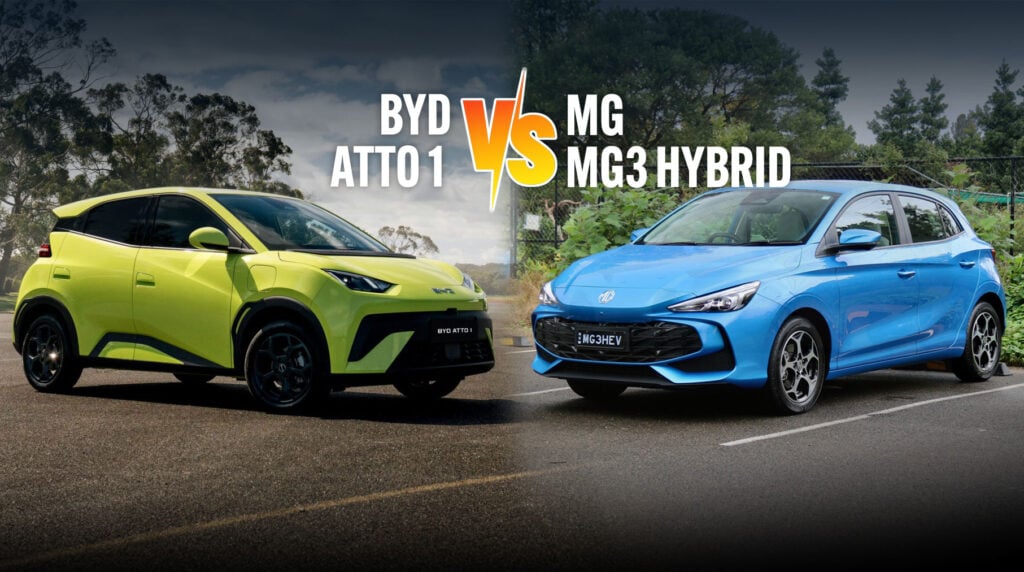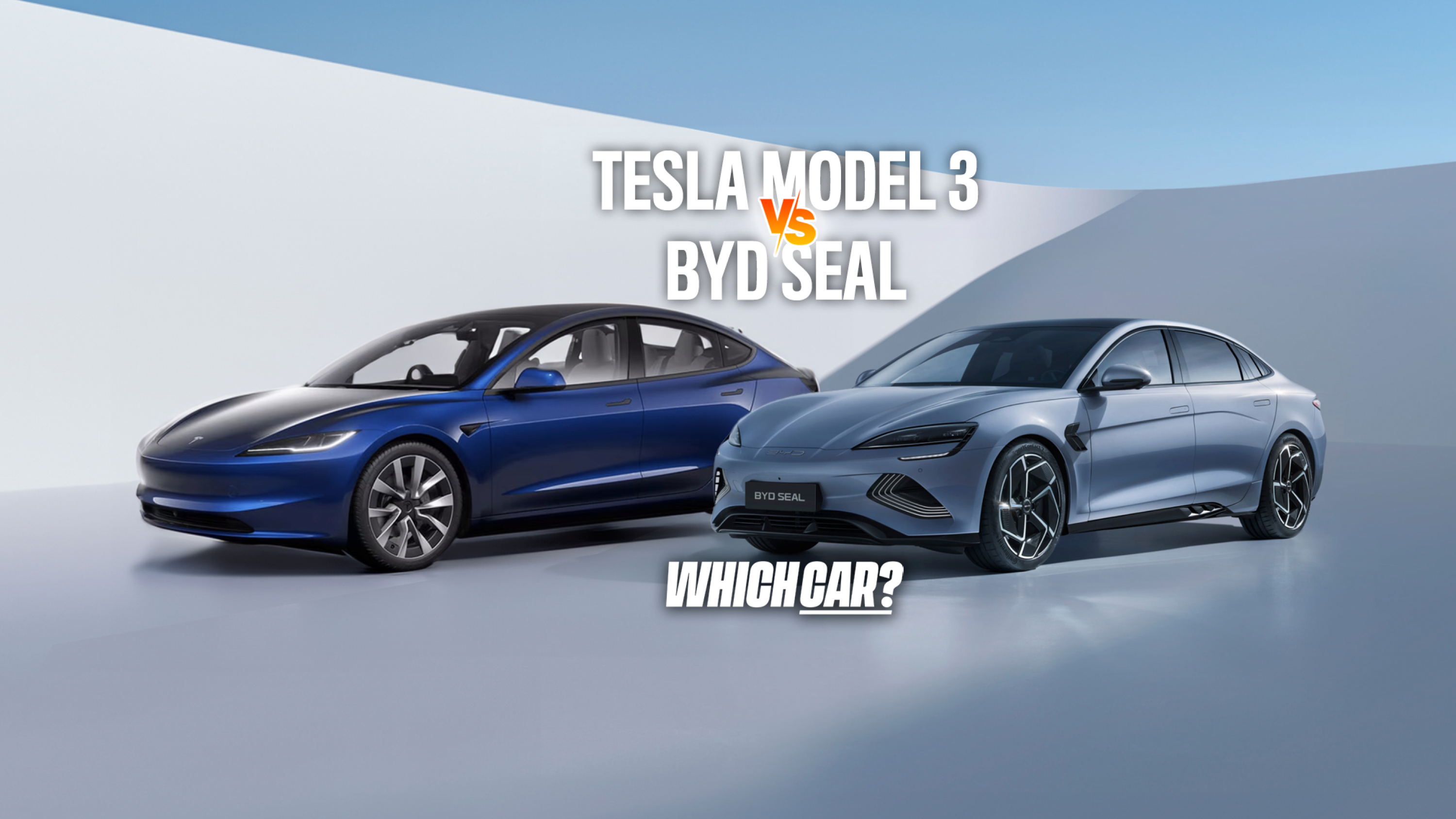
If you’re one of the thousands of Aussies in the market for a Tesla Model 3, chances are your interest was piqued by the recent pricing announcement for the 2024 BYD Seal.
The Seal is a direct competitor for the Model 3, and the pair align closely on size and a number of other key metrics.
One key number that differs markedly, however, is price. At $49,888 for the entry-level Dynamic RWD, the BYD Seal undercut the cheapest Model 3 by a whopping $12,012.
January 2024: Spec battle brought to life in three-car comparo!
December 2023: Seal Performance and updated Model 3 driven!
Story continues…
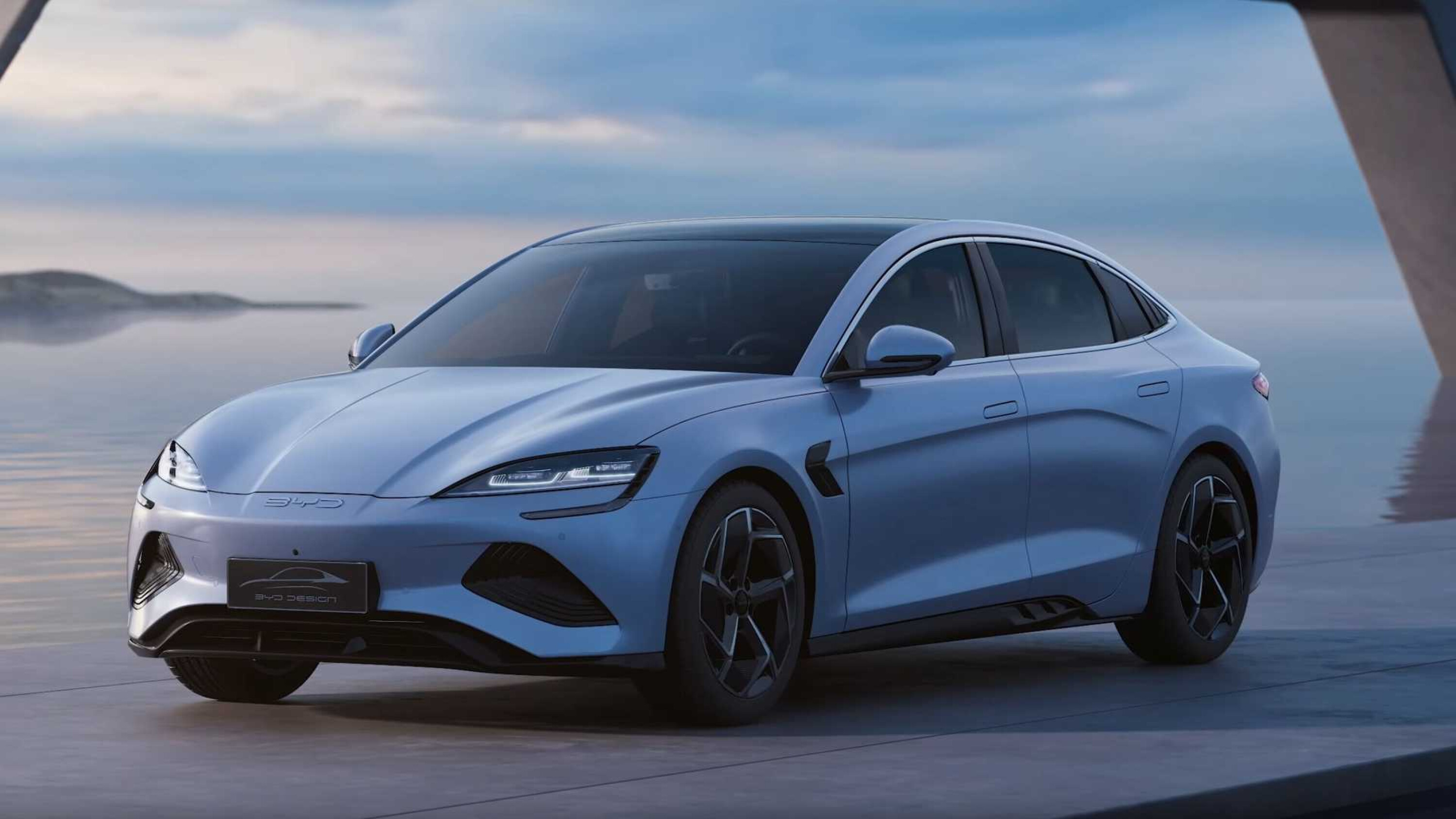
Unsurprisingly, that price gap sent social media into a frenzy, with some calling the BYD Seal an ‘EV game changer!’ while others asked “Has the Tesla Model 3 finally met its match?”
To help you better understand how these two electric sedans line up, this article will explore the differences in their size, performance and cabin executions. We’ll also compare their specs for battery size, recharging times and range.
We’ll be comparing the BYD Seal with the facelifted 2024 Tesla Model 3, due here later this year with a revised exterior design, upgraded cabin and improved driving range.
Is the BYD Seal a smarter buy than a Tesla Model 3?
Let’s dive into the numbers.
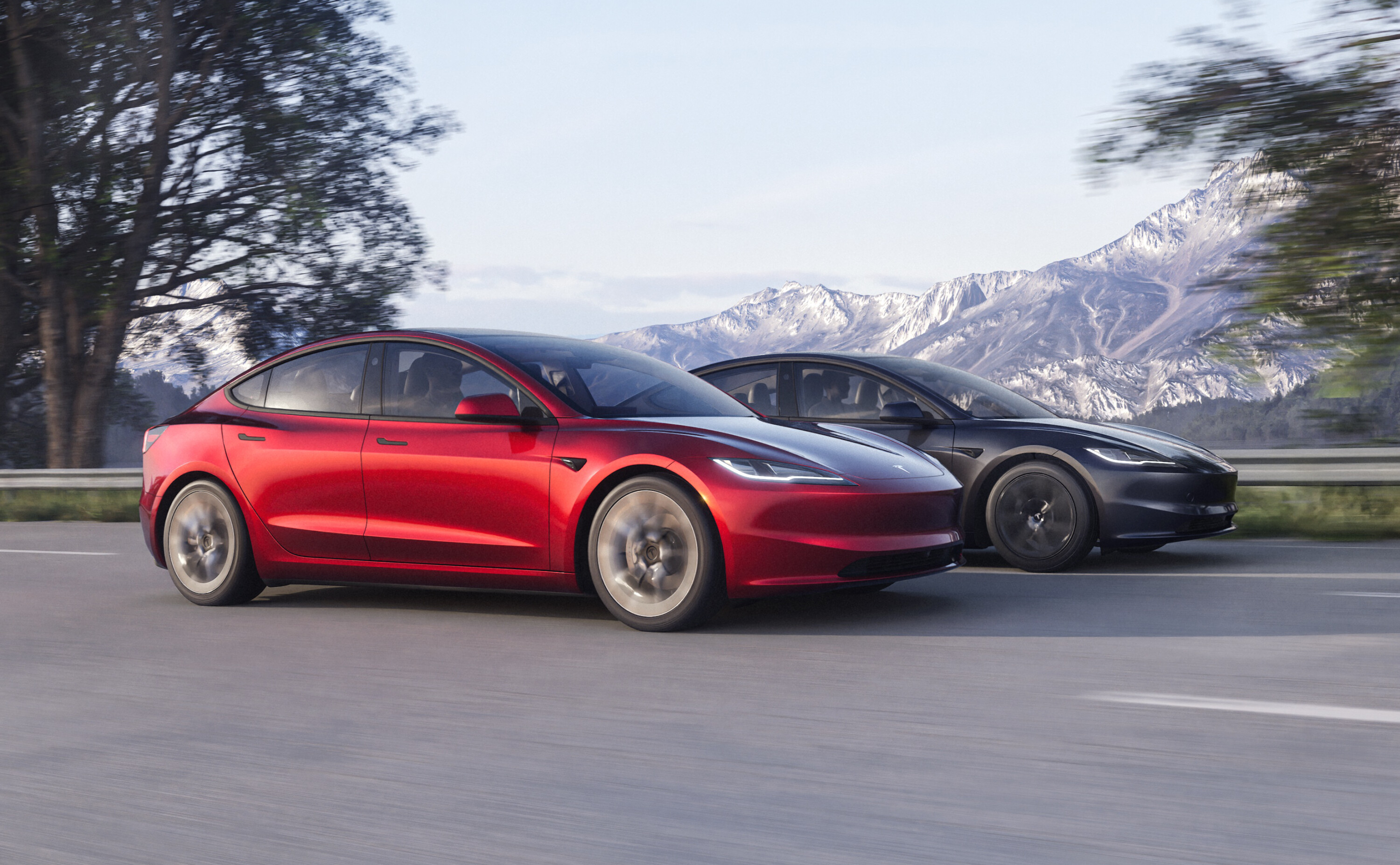
JUMP AHEAD
Dimensions & boot space
At 4800mm long, 1875mm wide and 1460mm tall, the BYD Seal is 80mm longer, 58mm narrower and 19mm taller than the Tesla Model 3.
It also rolls on a 45mm longer wheelbase (2920mm vs 2875mm), which could help to give the Seal an advantage when it comes to cabin space.
One area the BYD trails the Tesla, however, is boot space. The BYD Seal offers a 400-litre boot and an extra 50L in the nose. That’s significantly less than you get in the Tesla, which has a 561L boot and an 88L frunk.
| BYD Seal | Tesla Model 3 | |
|---|---|---|
| L/W/H (mm) | 4800/1875/1460 | 4720/1933/1441 |
| Wheelbase | 2920mm | 2875mm |
| Boot space | 400L + 50L frunk | 561L + 88L frunk |
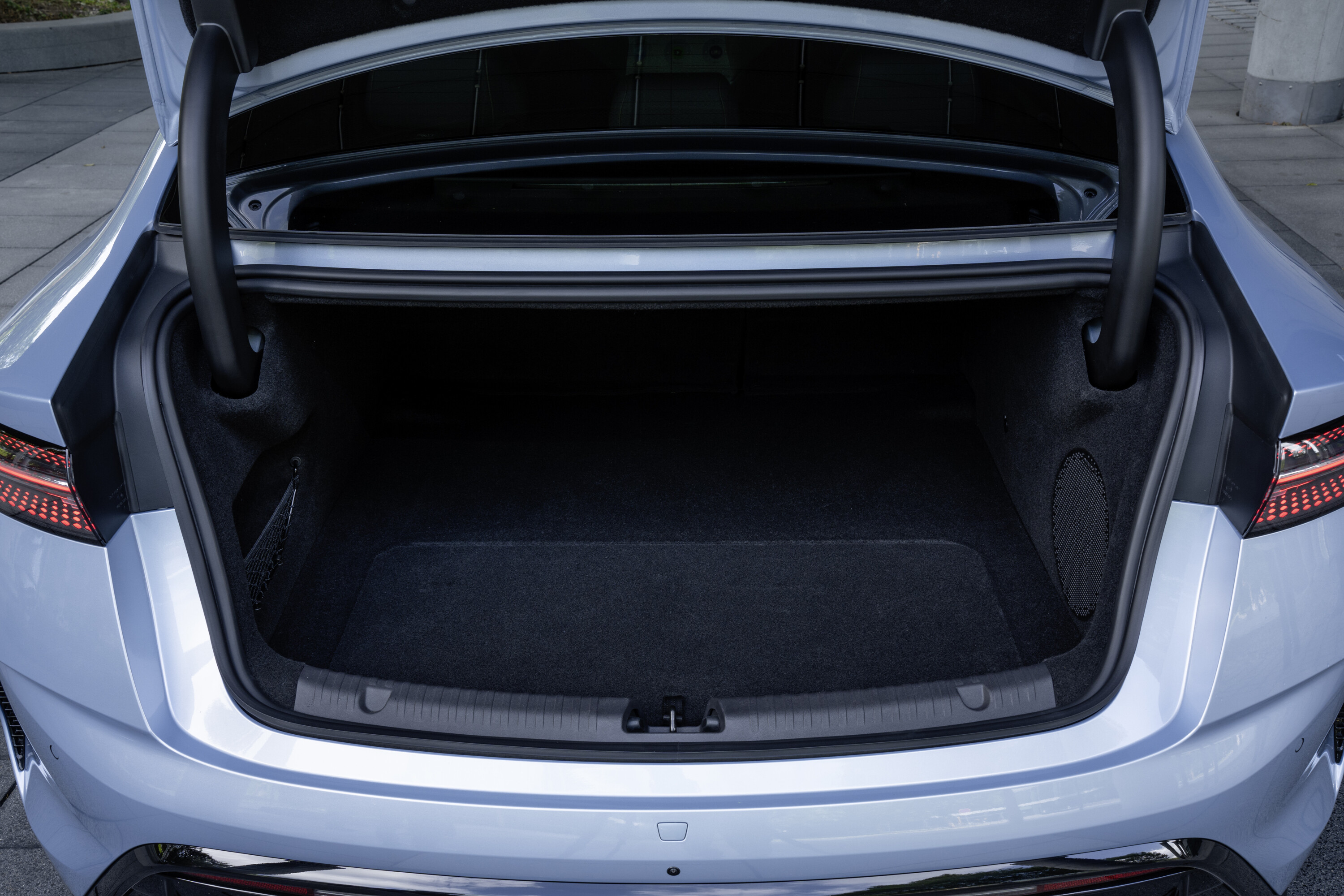
Range and performance
This is where things get interesting.
While the BYD Seal does undercut the Model 3 by $12,012, that price difference is for the entry-level Seal Dynamic RWD – which isn’t in the same league as the Tesla for performance, range or charging capacity.
With 150kW/310Nm on tap and a 0-100km/h time of 7.5 seconds, the Seal Dynamic trails the Model 3 RWD’s 208kW/420Nm (+58kW/110Nm) outputs and 100km/h sprint of 6.1 seconds (-1.4sec).
The BYD’s claimed WLTP driving range also trails the Tesla by a decent margin (460km vs 513km). And the Seal Dynamic’s 61.4kWh battery can only accept 110kW DC fast charging, which is well down on the 170kW maximum in the Model 3 RWD.
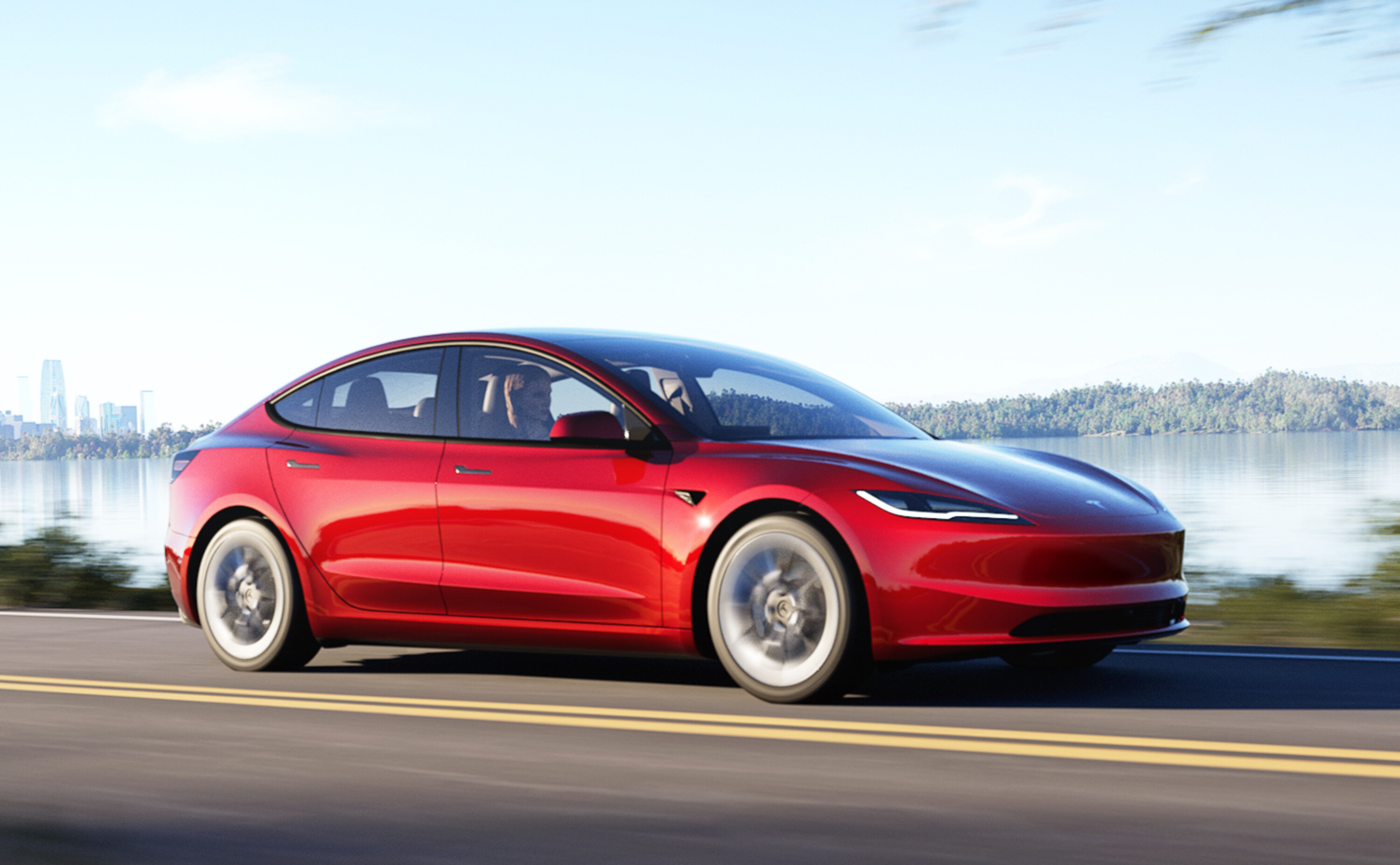
So while the BYD Seal Dynamic is substantially cheaper than the Model 3 RWD, that price advantage does bring some compromises.
A closer match for the Tesla, at least in performance and range, is the mid-spec Seal Premium RWD. At $58,798 it’s almost $10K pricer than the entry-level Seal but it aligns more closely with the Tesla ($61,900) and is lineball with the Model 3 when it comes to spec.
The BYD, for example, has 230kW/360Nm which is 22kW more than the Tesla but 60Nm less. The Seal is also marginally quicker to 100km/h (5.9sec plays 6.1sec) and its 82.5kWh battery accepts up to 150kW DC fast charging.
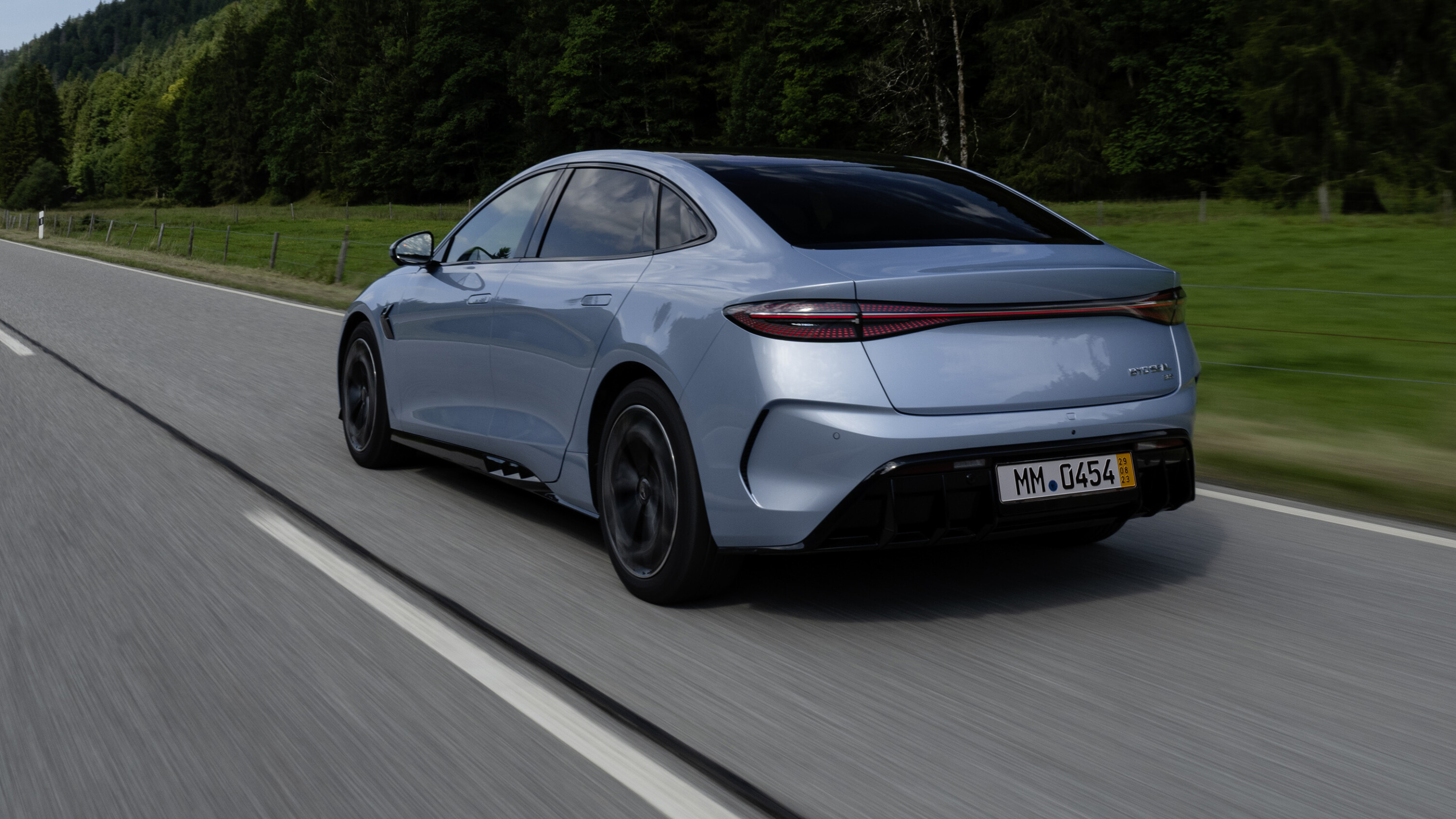
That still trails the Tesla, however, which can charge at 170kW. One area the BYD trumps the Tesla is range, with the seal Premium offering 570km on the WLTP cycle compared to the Model 3’s 513km.
Things are equally close when you compare the flagship versions of both cars. These models, the Seal Performance and Model 3 Long Range, are both all-wheel drive and cost $68,798 and $71,900 respectively.
The BYD is the more powerful and quicker of the pair, thanks to outputs of 390kW/670Nm and a 0-100km/h claim of 3.8 seconds. That’s 24kW/177Nm more than the Tesla and 0.6sec quicker to 100km/h. But the BYD pays a price for its extra performance and trails the Tesla’s WLTP range by a significant margin: 520km for the Seal Performance vs 629Nm for the Model 3 Long Range.
If any of the terms in this section have left you scratching your head, these articles will help bring you up to speed!
| BYD Seal Dynamic RWD | BYD Seal Premium RWD | BYD Seal Performance AWD | Tesla Model 3 RWD | Tesla Model 3 long-range | |
|---|---|---|---|---|---|
| Price | $49,888 | $58,798 | $68,798 | $61,900 | $71,900 |
| Power | 150kW | 230kW | 390kW/670Nm | 208kW | 366kW |
| Torque | 310Nm | 360Nm | 670Nm | 420Nm | 493Nm |
| E-motor | 1 x rear axle | 1 x rear axle | 2 (one per axle) | 1 x rear axle | 2 (on per axle) |
| Battery size | 61.4kWh | 82.5kWh | 82.5kWh | 57.5kWh | 65kWh |
| WLTP range | 460km | 570km | 520km | 513km | 629km |
| 0-100km/h claim | 7.5sec | 5.9sec | 3.8sec | 6.1sec | 4.4sec |
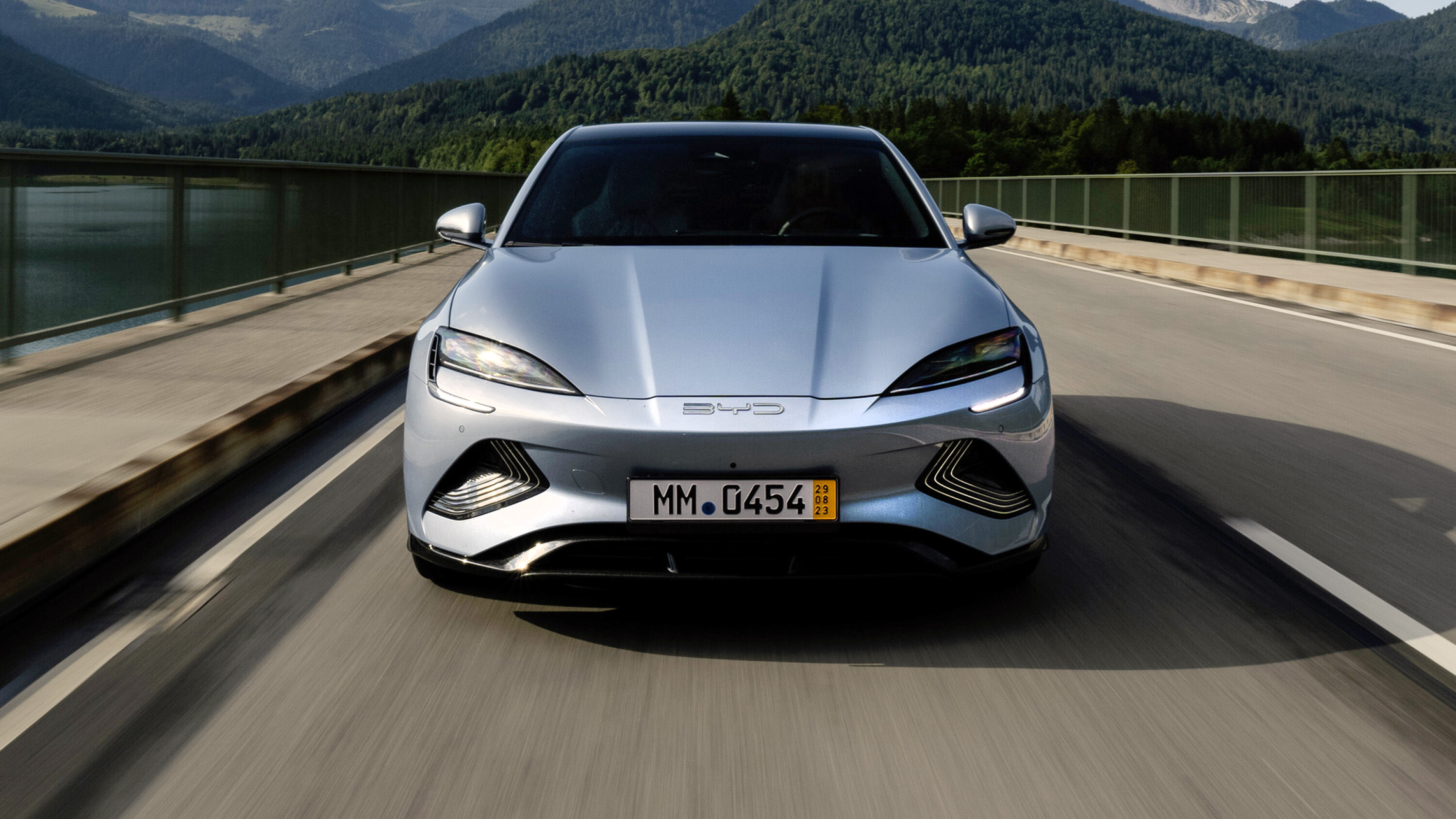
- What is a Powertrain or Drivetrain?
- Power vs torque
- Car suspension explained
- Automatic transmissions (‘gearboxes’) explained
- Chassis control systems explained
- Car vs Ute vs SUV: How the vehicle you buy should guide the way you drive
- What is the WLTP emissions and range test?
This is one area where the Tesla holds a clear advantage. On an AC charger, the BYD’s maximum charge rate is 7kW, meaning it’ll take between 8hr 46m to 11h 47m for a full charge, depending on which battery size you go for.
The Tesla, meanwhile, accepts 11kW AC charging and will take roughly 6.5 hours to reach a full charge in the Model 3 RWD. The larger battery in the Model 3 Long Range will take around 8 hours to go from 0-100 per cent on an AC charger.
The gap between the BYD Seal and Tesla Model 3 is even larger when hooked up to a DC fast charger. As previously mentioned, the BYD Seal has a maximum DC fast charging rate of 110kW for the Dynamic RWD and 150kW for the mid-spec Premium and flagship Performance versions.
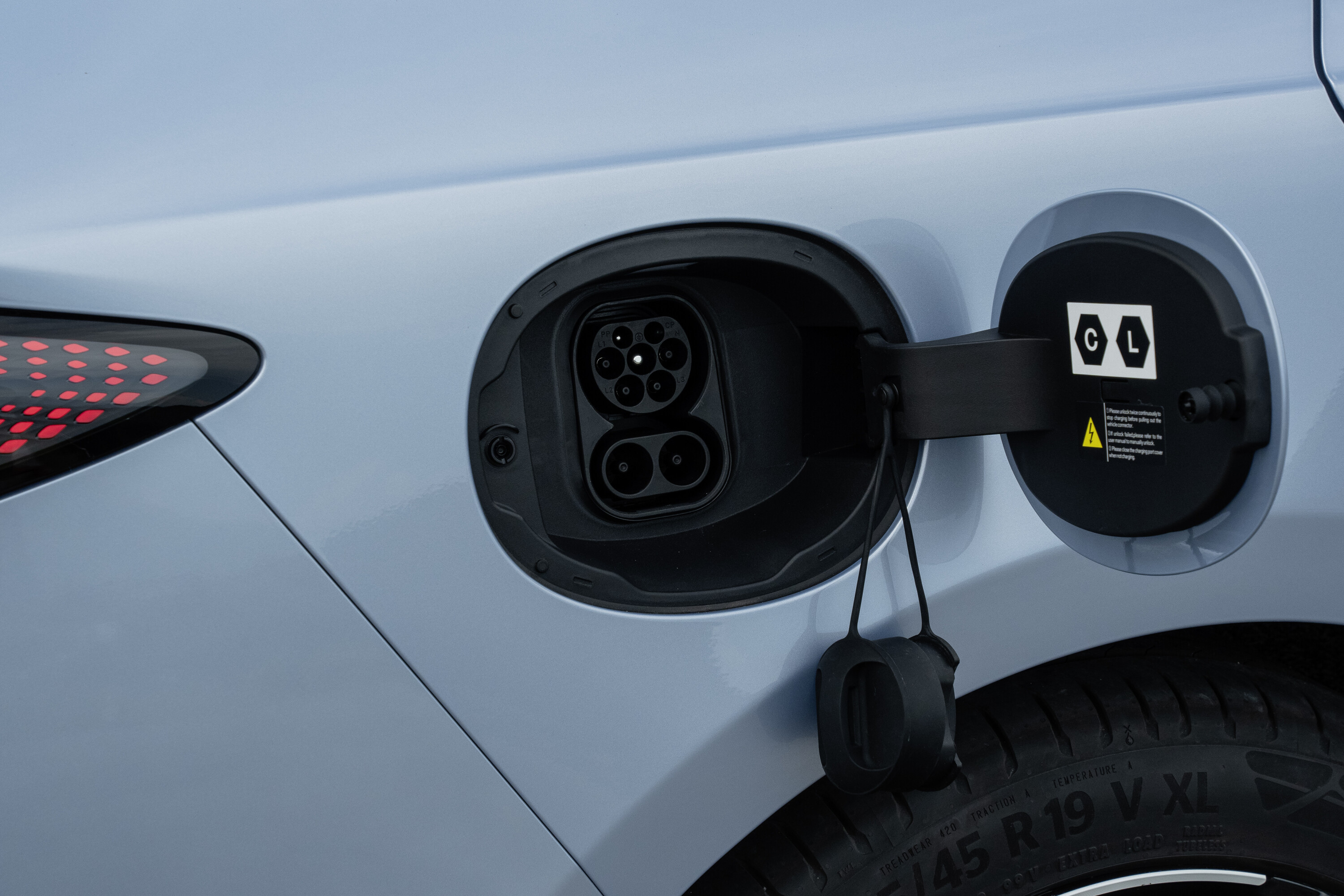
On a 150kW DC fast charger, the BYD Seal can top up its battery from 10-80 percent in 37 minutes.
The Model 3 RWD, meanwhile, can accept 170kW DC fast changing, while the Long Range has a max charge rate of 250kW. Tesla says the latter allows you to add up to 282km of range in 15 minutes.
Notably, the Tesla’s battery is also far more efficient. The Model 3’s battery is smaller than those in the Seal, yet the Tesla offers superior range. A smaller battery pack also helps to save weight and improve efficiency, and every version of the Model 3 is lighter than its BYD counterpart, sometimes by as much as 357kg.
Less weight doesn’t only improvement performance and handling but also range, so it’s a virtuous circle.
| BYD Seal Dynamic RWD | BYD Seal Premium RWD | BYD Seal Performance AWD | Tesla Model 3 RWD | Tesla Model 3 long-range | |
|---|---|---|---|---|---|
| Battery size | 61.4kWh | 82.5kWh | 82.5kWh | 57.5kWh | 65kWh |
| AC charging | 7kW | 7kW | 7kW | 11kW | 11kW |
| DC charging | 110kW | 150kW | 150kW | 170kW | 250kW |
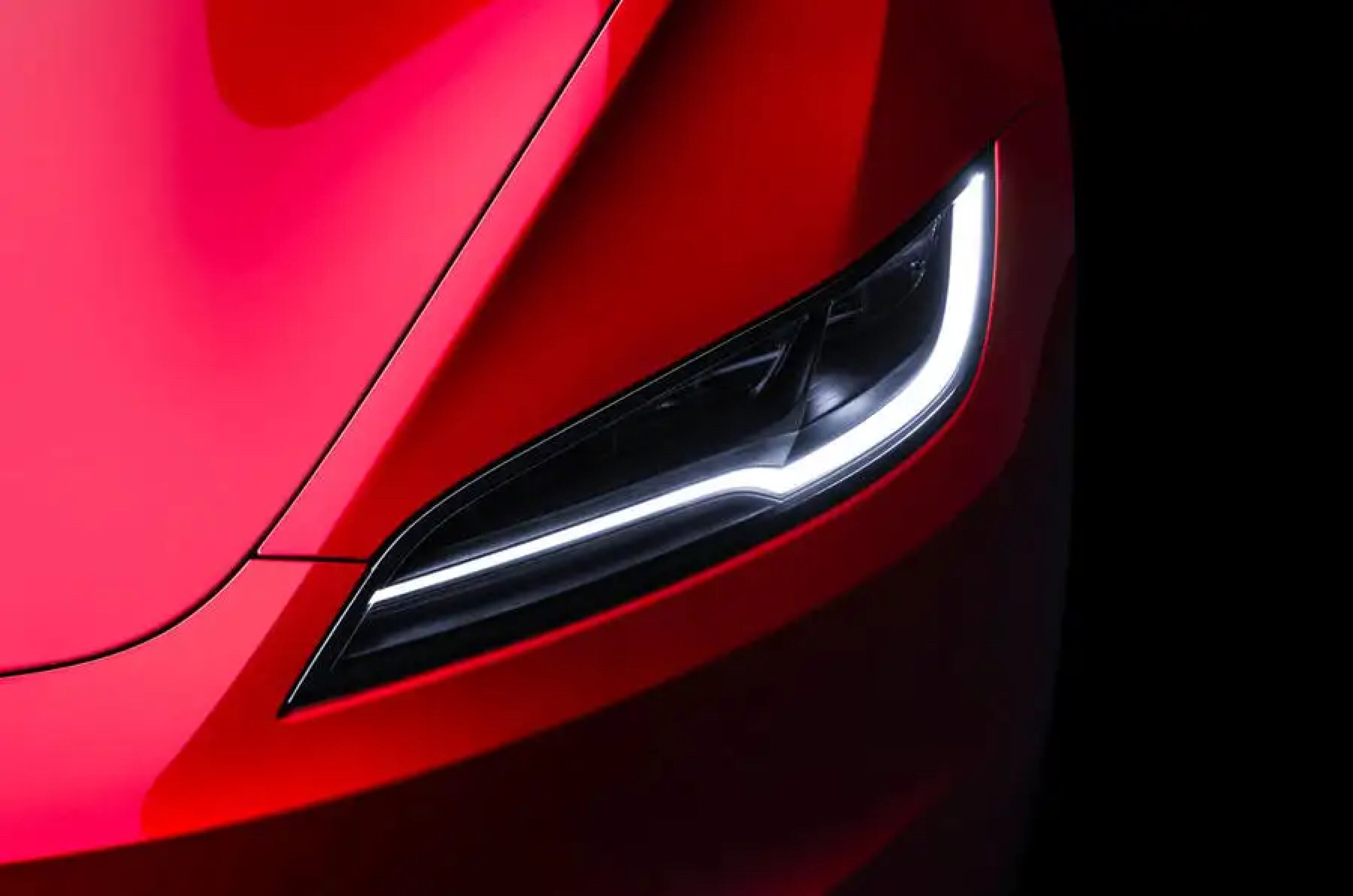
Interior and cabin design
Tesla is famous (or is that infamous?) for its minimal cabin design, and the updated 2024 Model 3 features an even more spartan layout than before.
As part of its major facelift, the 2023 Model 3 boasts a new dash design, a revised centre console, new seats (now with ventilation) and a new steering wheel.
Tesla has also deleted the stalks behind the steering wheel to give the cabin an even less cluttered appearance (and a more affordable parts bill), with these functions moved into touch-sensitive buttons on the wheel or into the centre touchscreen. Yep, your blinkers are now buttons on the steering wheel itself.
The Model 3’s centre screen is now slightly larger at 15.4-inches, has a thinner bezel and is said to offer faster response times.
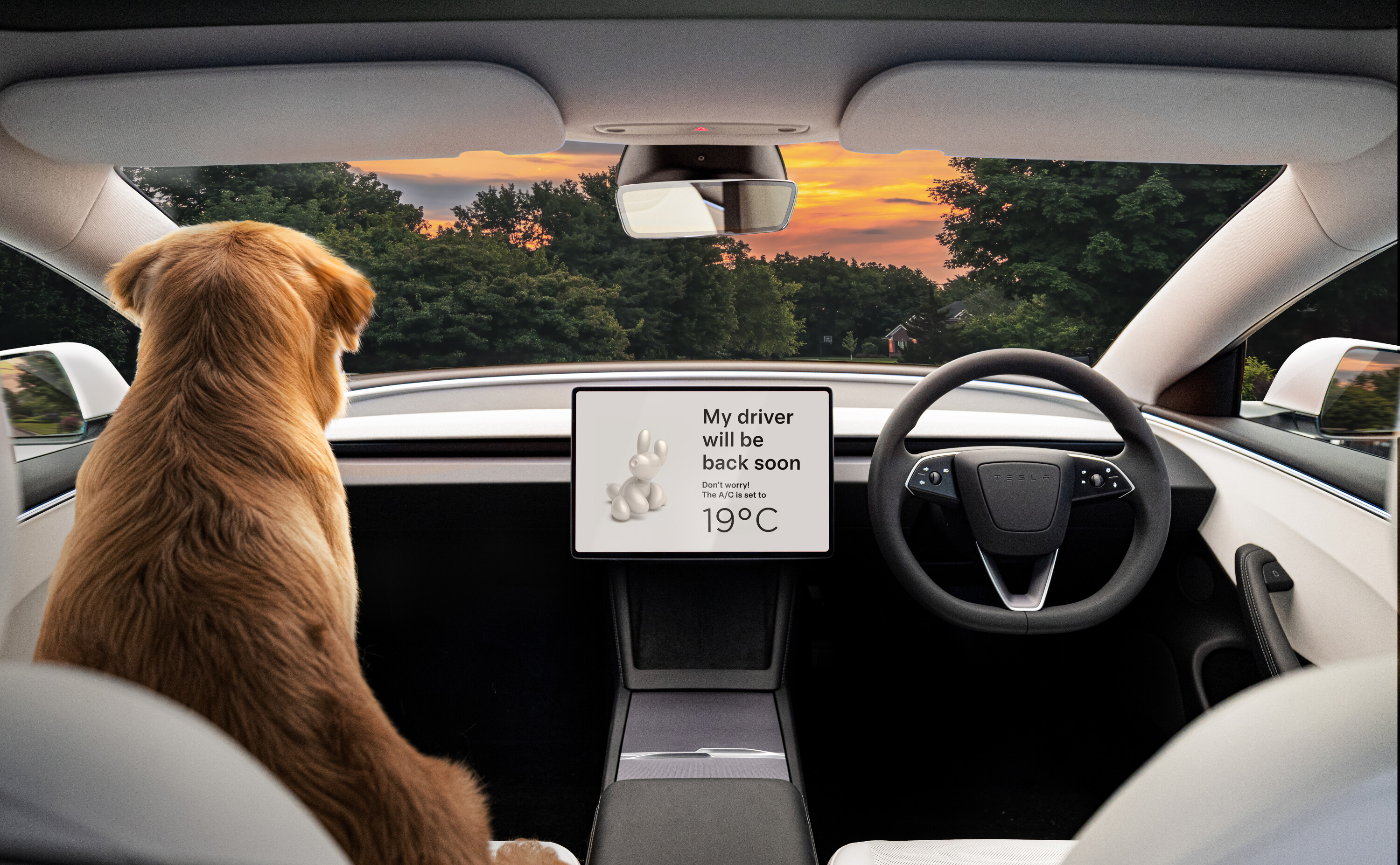
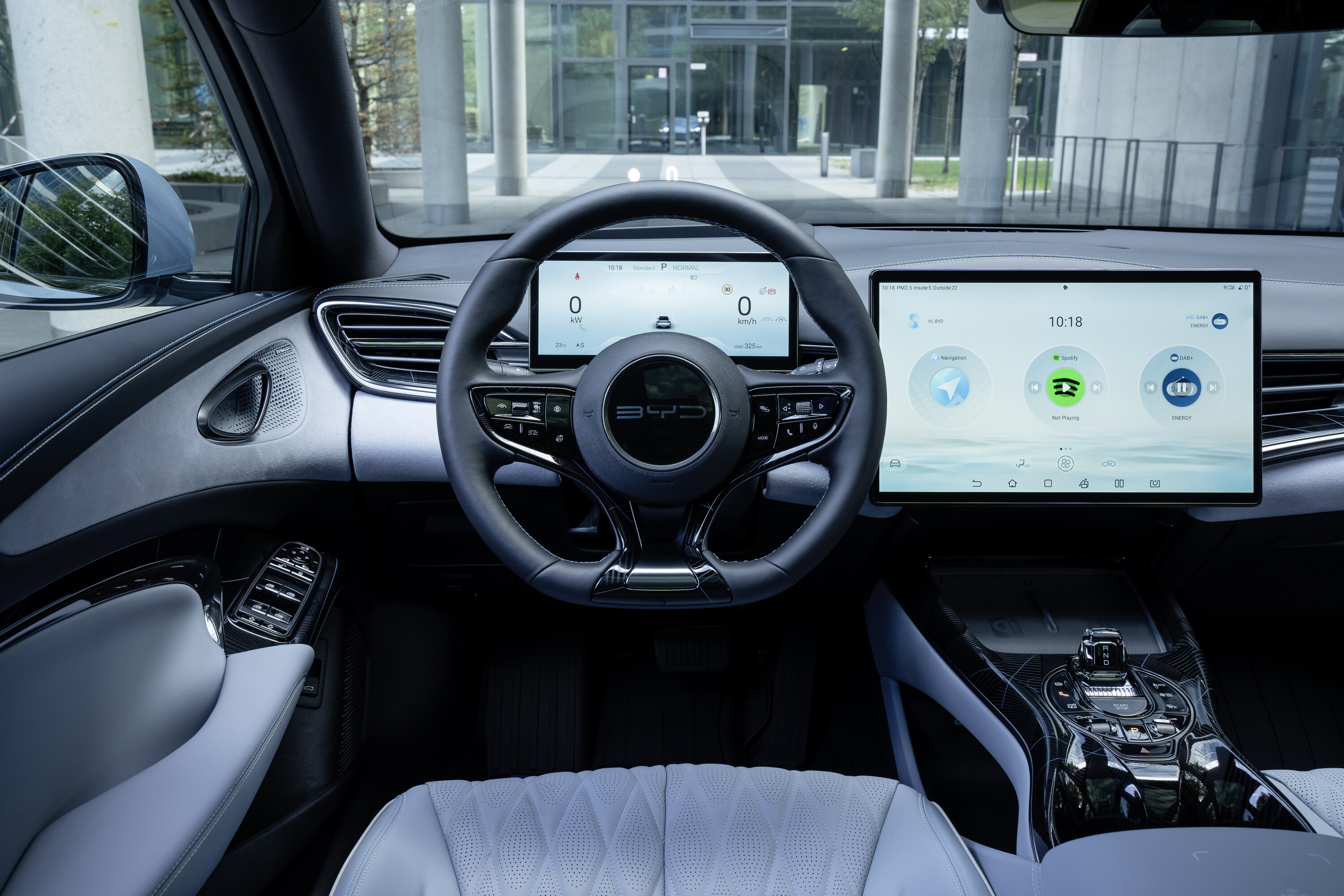
The cabin in the BYD Seal couldn’t be more different.
Its design is busier in a more conventional fashion, with more buttons and an even bigger 15.6-inch centre display that can rotate between portrait and landscape orientations.
Importantly, the Seal features a head-up display in Premium and Performance models, which is tech notably absent from the Tesla Model 3.
Apple CarPlay and Android Auto are also featured with the Seal – another omission in the Model 3, although it somewhat makes up for this with a comprehensive range of available media apps. CarPlay in the Seal is also wired rather than wireless, which feels a touch outdated in 2023.
Both the Tesla and BYD offer panoramic sunroofs and dedicated air vents for rear passengers, although the Model 3’s facelift has added an 8.0-inch touchscreen at the back of the centre console, offering rear occupants control of their climate, music and entertainment apps.
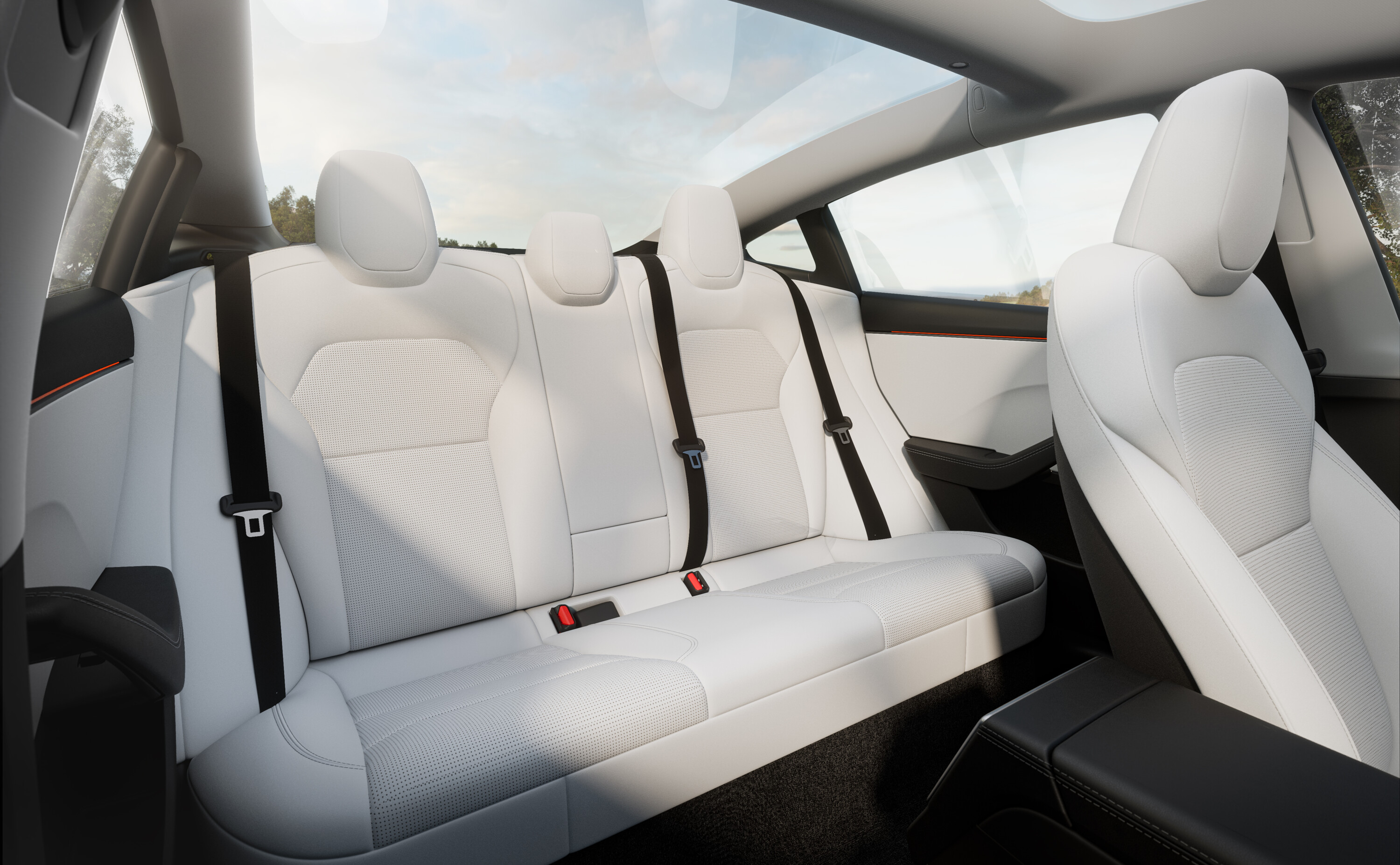
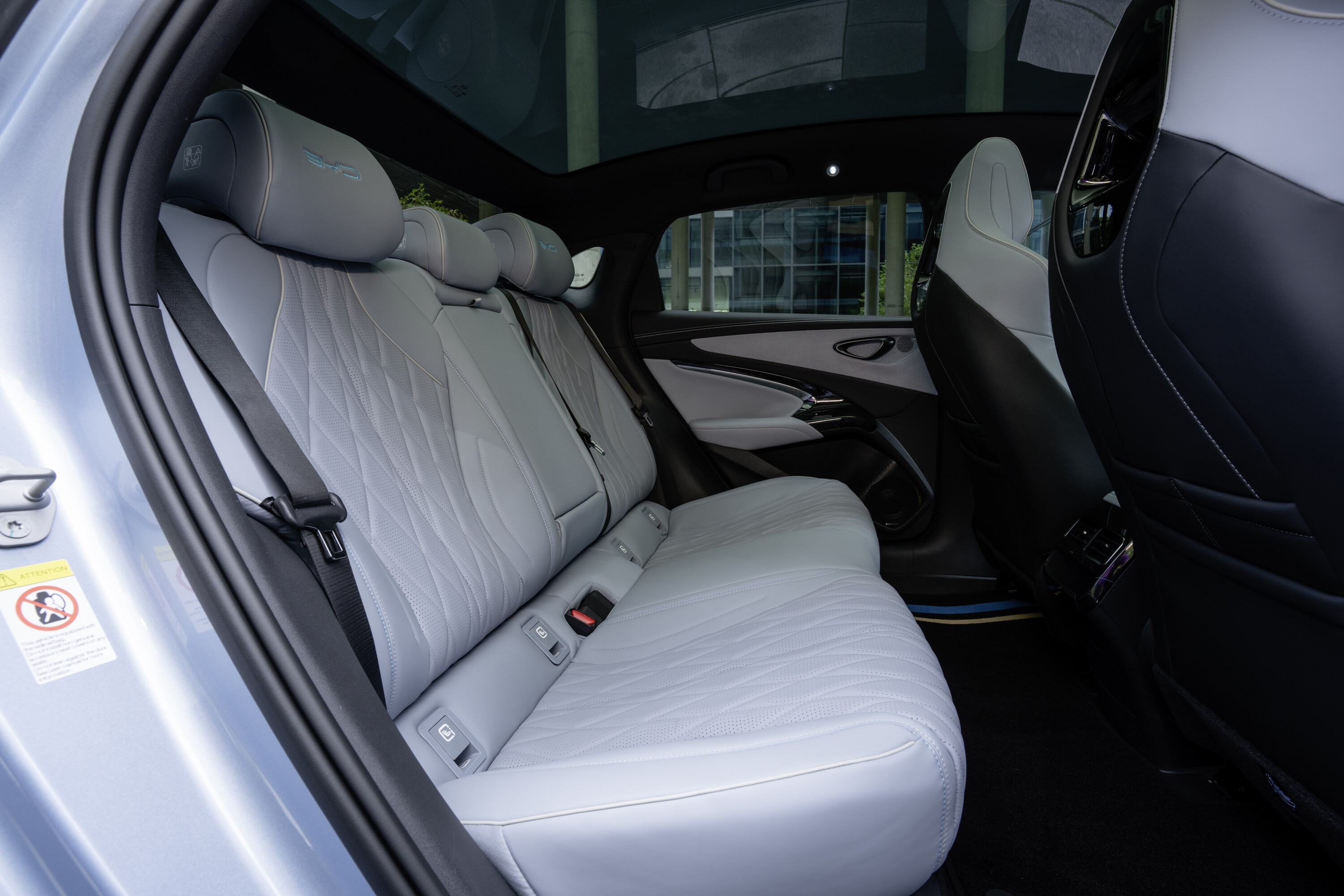
Pricing
It’s easy to fixate on the BYD Seal’s sizeable $12,012 price advantage over the Tesla Model 3, but as we’ve established, that price gap is something of a red herring.
It relates only to the entry-level BYD Seal Dynamic RWD which, although well specced, can’t compete with the entry-level Model 3 RWD for performance outputs, recharging times, acceleration or range.
Once you discount the BYD’s cheapest variant, the BYD Seal and Tesla Model 3 actually align very closely on spec and price.
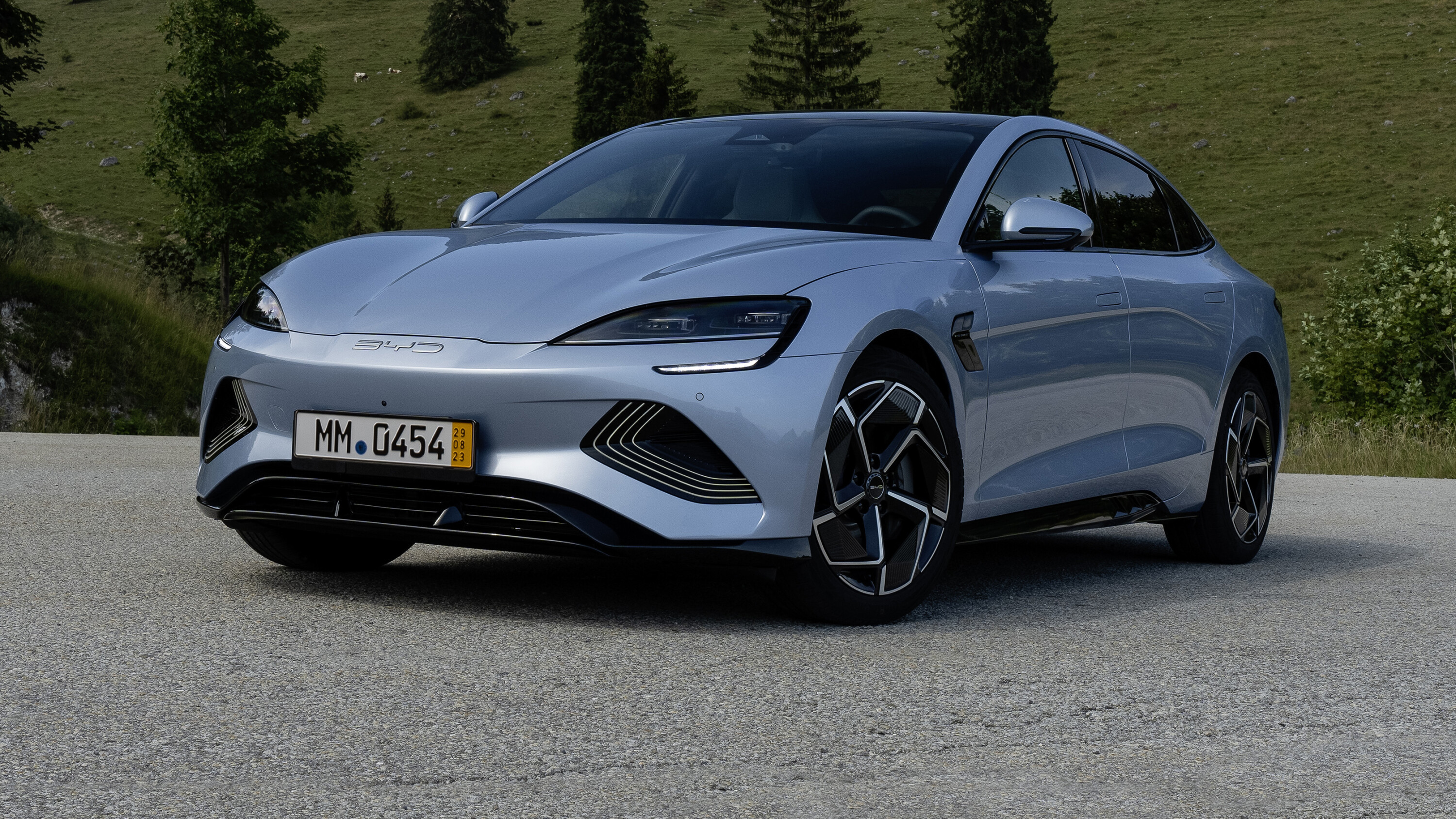
The mid-spec Seal Premium and Model 3 RWD offer similar levels of performance, range and equipment – but it’s the BYD that carries the slightly lower price tag: $58,798 vs $61,900.
It’s a similar story when you compare the BYD Seal Performance ($68,798) and Tesla Model 3 long-range ($71,900), although this pair have a slightly different focus to help split them. The BYD is quicker and more powerful while the Tesla is marginally slower but offers a longer range.
No matter which version you choose, the BYD holds an advantage when it comes to warranty, with its six-year / 150,000km coverage period trumping the Model 3’s warranty of four years / 80,000km.
On the road: How do they compare in the driving department?
Local deliveries for the Seal don’t begin until December, and the facelifted Model 3 won’t arrive until early next year, so it’ll be a while before we can point these two EVs at each other.
In the meantime, you can read our overseas first-drive review of the Seal at the link below.
We recommend
-
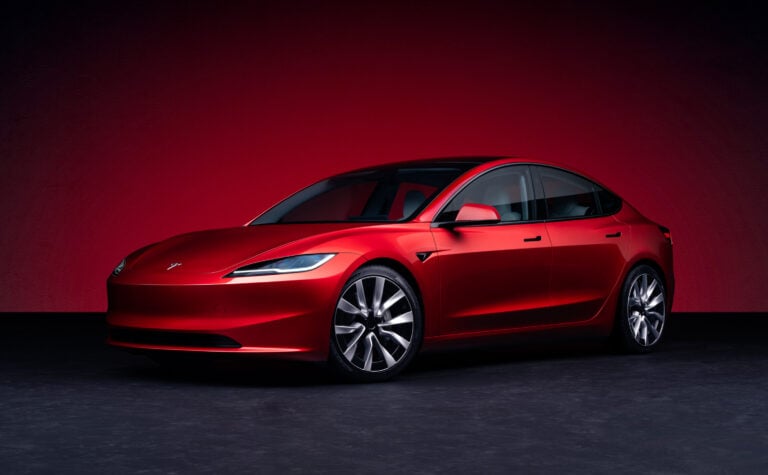 News
News2024 Tesla Model 3 facelift revealed, pricing confirmed
The much-anticipated Model 3 refresh has been unveiled, bringing the top-selling electric sedan more upmarket
-
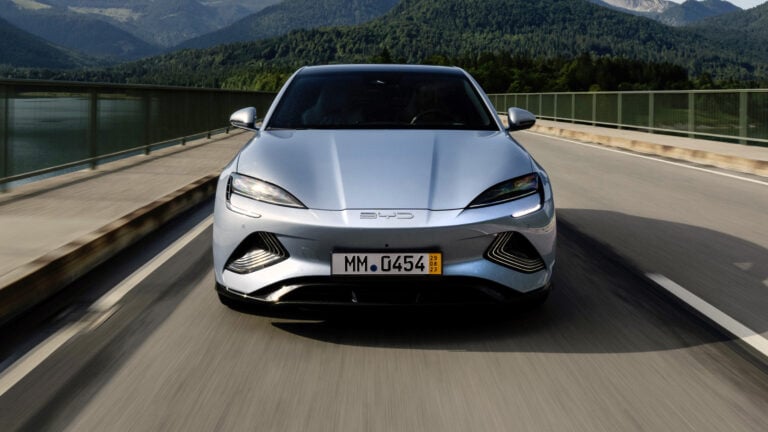 Reviews
Reviews2024 BYD Seal review
The next car in the Build Your Dreams empire is the sporty Seal sedan with the Tesla Model 3 firmly in its sights
-
 News
NewsNew car calendar 2026: All the new cars coming to Australia next year
Here’s the WhichCar by Wheels guide to all the new cars that will launch in Australia in 2026. Check back in regularly for updates...


